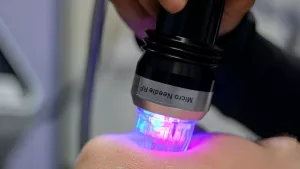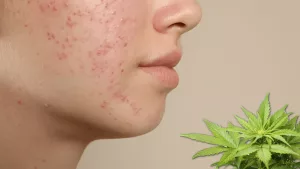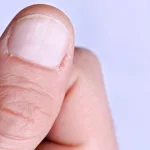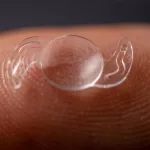Conventional deodorants and antiperspirants may include ingredients that raise concerns. Natural deodorants omit many synthetic and artificial additives. You can even whip up your own natural deodorant using an uncomplicated recipe.

Why make the switch to natural deodorant?
A tough set of burpees, commuting on a packed train, or presenting to a large group — any of these situations can leave your underarms damp or even drenched.
Conventional deodorants and antiperspirants aim to suppress odor and moisture, but some formulations include components that can be irritating, potentially harmful, or might even make underarm odor worse over time. They can also shift the pH balance, creating an environment that favors odorous bacteria.
That’s why we’re sharing the lowdown on natural deodorants and offering a few pointers for crafting your own.
Why do armpits smell and how do deodorants work?
The biology behind body odor can seem off-putting. Your underarms provide a warm, humid niche for bacteria, similar to a petri dish. When you sweat, bacteria feed on that moisture. The byproducts of this process produce the smell associated with sweat.
Deodorant vs. antiperspirant: what’s the difference?
There are distinct differences between deodorants and antiperspirants.
Traditional deodorants are formulated to control odor. They often contain antimicrobial agents or alcohol to reduce odor-causing bacteria.
Antiperspirants, conversely, are meant to curb or stop sweating. These products typically contain aluminum-based salts that temporarily block sweat ducts so bacteria have less moisture to consume.
Many shelf products combine deodorant and antiperspirant properties, which might sound ideal: eliminate bacteria and neutralize odor, right?
Not necessarily.
A small 2016 study found that these conventional products can change the skin’s microbial community, not always for the better.
The five participants who avoided antiperspirant or deodorant had more Corynebacterium in their armpits.
This common genus lives in the underarm alongside Staphylococcus, Propionibacterium, and Micrococcus. While Corynebacterium does contribute to body odor, it also helps guard against infections.
Bacteria naturally inhabit your skin. Although some can cause illness, other “beneficial bacteria” provide protection against harmful microbes and assist with critical bodily functions.
Killing off helpful bacteria might open the door to different microbes — potentially ones that produce stronger odors or even influence immune responses.
What qualifies a deodorant as natural?
If you’ve swapped your conventional stick to foster a healthier underarm microbiome, you may wonder what makes a deodorant “natural.” Beyond avoiding synthetic additives, natural deodorants typically include three types of components:
- ingredients with antibacterial or antiseptic properties, such as coconut oil or tea tree oil
- essential oils like lavender, sandalwood, or bergamot to add a pleasant aroma
- naturally absorbent powders like baking soda, arrowroot, or cornstarch to help manage moisture
Natural deodorants don’t block sweat glands like antiperspirants do, and they don’t contain aluminum, an ingredient some people prefer to avoid.
Natural deodorants tackle scent, not sweating — and that’s often beneficial
Don’t expect identical effects when switching to a natural option. It can take days or weeks for your underarm microbiome to rebalance. Some people try an armpit detox to hasten the shift, but remember natural deodorants won’t stop sweating. Instead, they aim to reduce odor as you perspire.
Generally, you probably don’t want to erase your personal scent signature entirely.
Body odor is often framed negatively, but it’s not inherently bad. In fact, your sense of smell can influence mate choice.
So while you might skip a date without showering after a hot yoga class, your natural scent is perfectly acceptable day-to-day — and it might even attract someone compatible.
DIY deodorant
You can buy natural deodorant at health-food stores, online, or where other natural skincare items are sold.
Some commonly used products include:
- Schmidt’s natural deodorant
- Green Tidings all natural unscented deodorant
- Pretty Frank natural deodorant
Picking the right natural deodorant can require some trial and error, much like finding a great pair of jeans. People not only smell differently, but they also react differently to scents.
Research from 2013 shows that genetic differences influence how people perceive odors. A patchouli-scented stick may clash with your chemistry while working well for someone else.
Trying several scents can help you land on a natural deodorant that suits you.
Make your own deodorant
If store-bought options don’t appeal, you can make deodorant at home. Here’s a straightforward recipe:
Ingredients:
- 1/3 cup coconut oil
- 1/4 cup baking soda
- 1/4 cup arrowroot starch
- 6 to 10 drops of essential oils, optional
Directions:
- Combine baking soda and arrowroot.
- Stir in coconut oil until smooth. Add essential oils if you like.
- Transfer the blend into a clean glass jar.
- To apply, warm a small amount between your fingers until it liquefies, then spread on your armpits.
When crafting your own natural deodorant, experiment with different bases, powders, and oils. Shea butter, cocoa butter, and coconut oil are effective base options, but you can also make an all-powder version if preferred.
Alternative method:
- Mix equal parts baking soda and arrowroot.
- Add a few drops of your chosen essential oils.
- Shake to blend thoroughly.
- Store in an empty spice jar fitted with a shaker lid.
Consider these natural deodorant alternatives as well.
Your diet affects your natural body odor
Curious why your body odor seems pronounced? Your regular diet could be a factor.
In one 2006 study, 17 men ate either a “meat” or “nonmeat” diet for two weeks while wearing pads under their arms to collect scent samples. After a month, they swapped diets and repeated the test.
Thirty women rated the samples for pleasantness, intensity, attractiveness, and masculinity. Odor from men on the nonmeat diet was rated as significantly less intense and more pleasant and attractive.
In short, frequent consumption of red meat might worsen body odor and reduce attractiveness to potential mates.
Likewise, pungent foods like garlic or onions can affect your breath and, when you sweat, can make your overall scent stronger.
Eating more fruits and vegetables may, conversely, have a beneficial effect on body odor.
The bottom line
If you’re using deodorant regularly and still worried about persistent body odor, consider consulting a healthcare provider. Certain medical conditions can sometimes increase body odor.
If natural deodorant doesn’t seem to help, you can try the practical tips mentioned here.
Ultimately, remember that sweating and body odor are natural. Don’t let concern about your natural scent stop you from raising your arms and enjoying life.

























Leave a Reply
You must be logged in to post a comment.